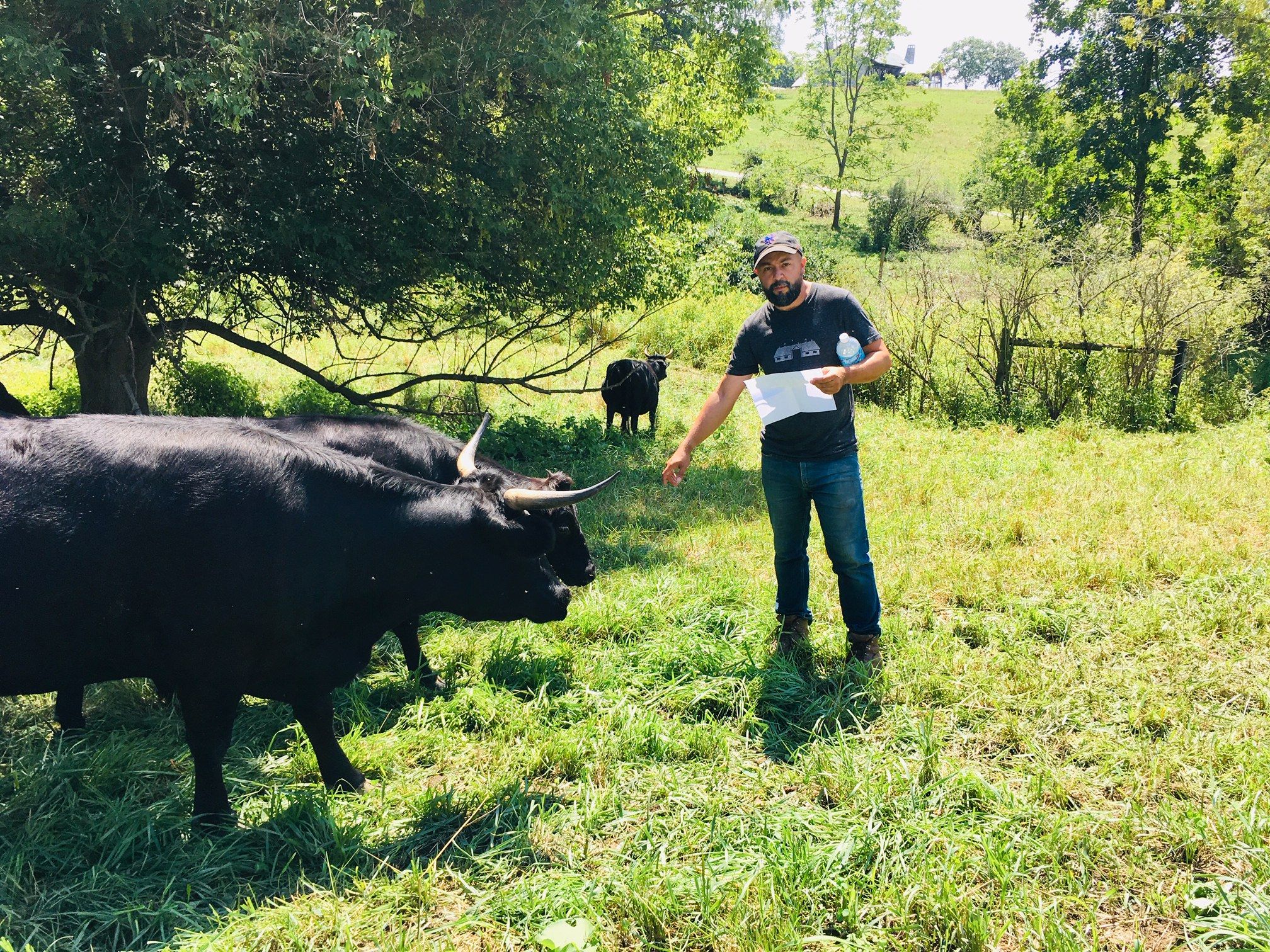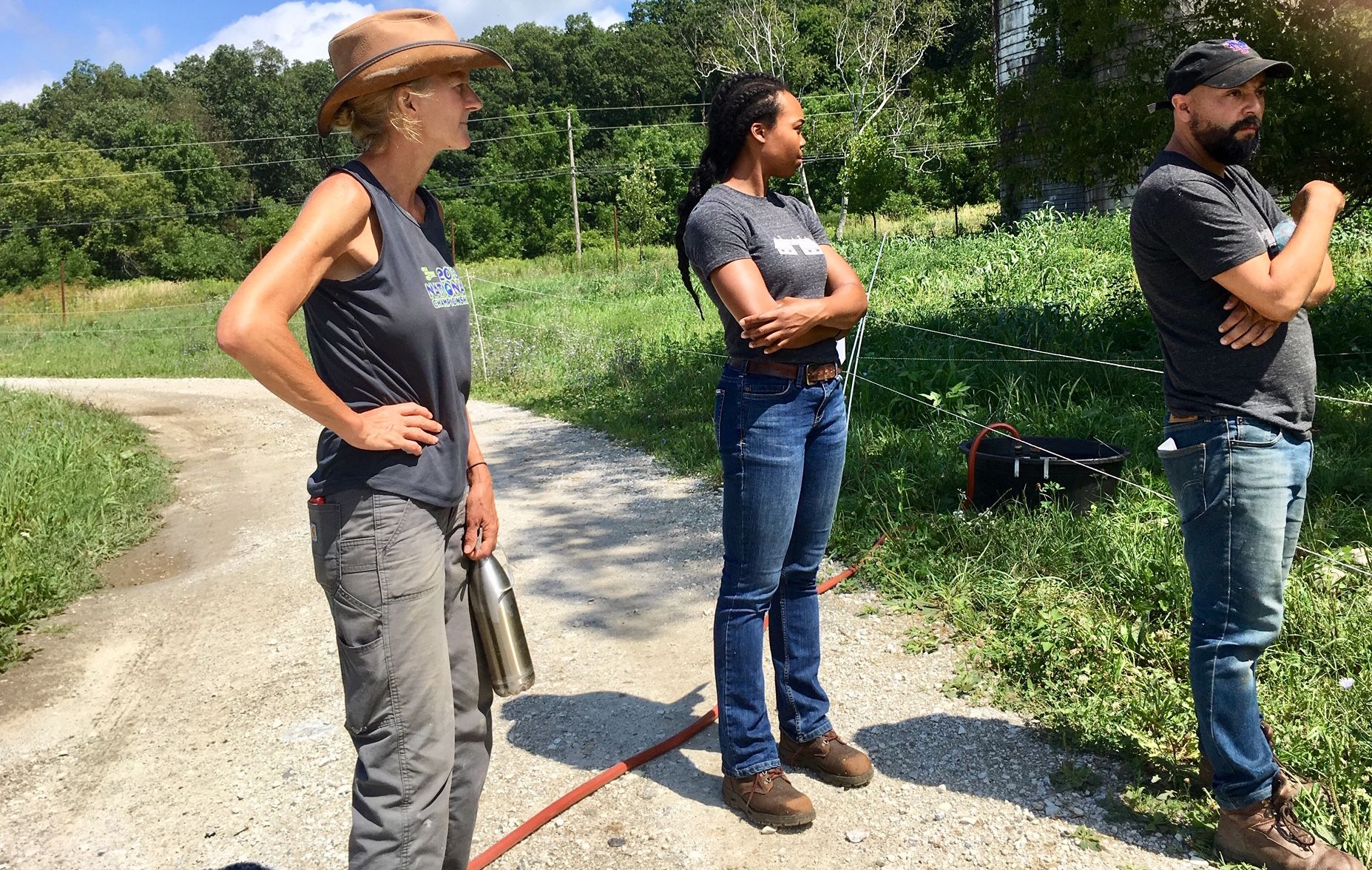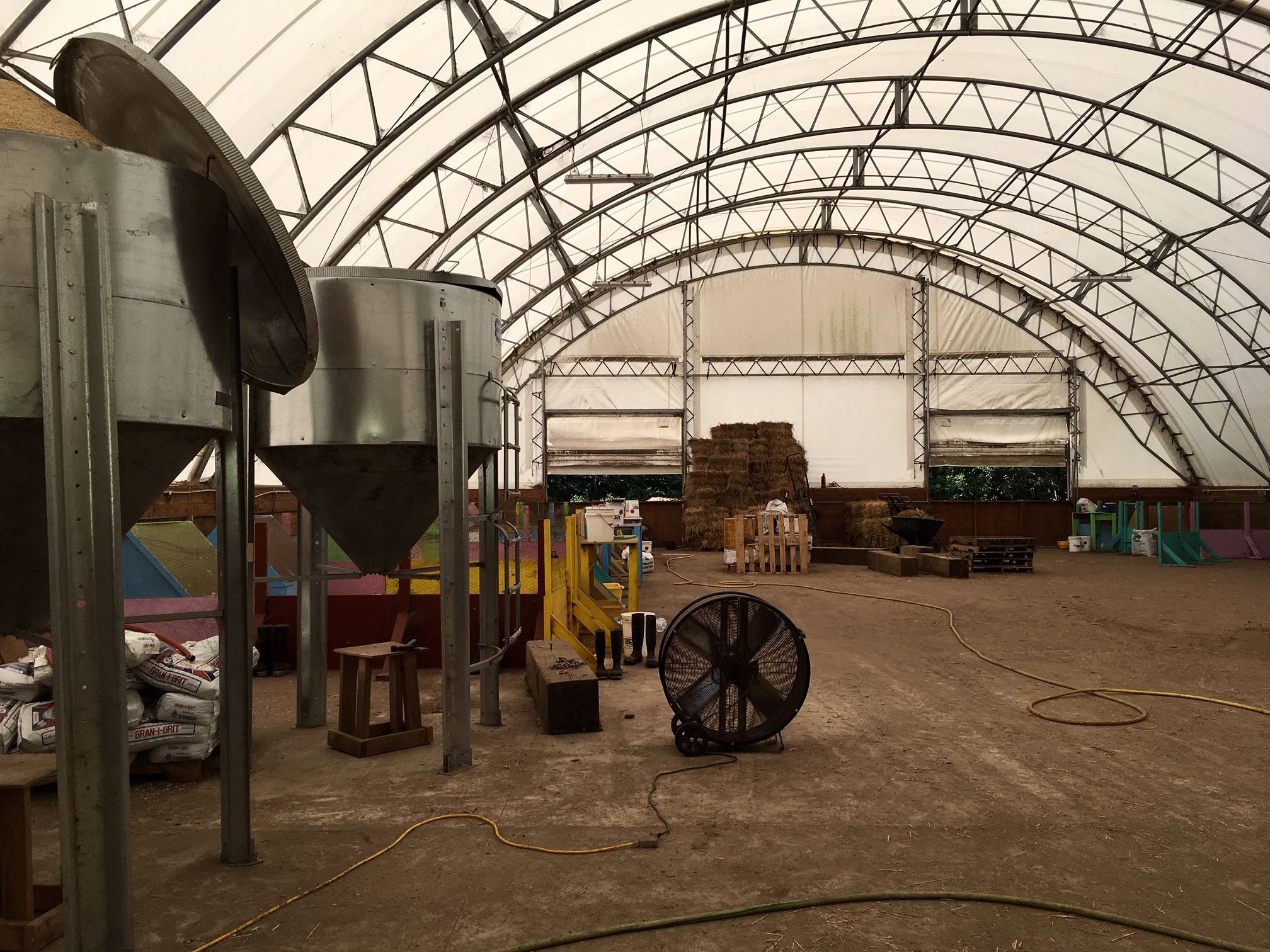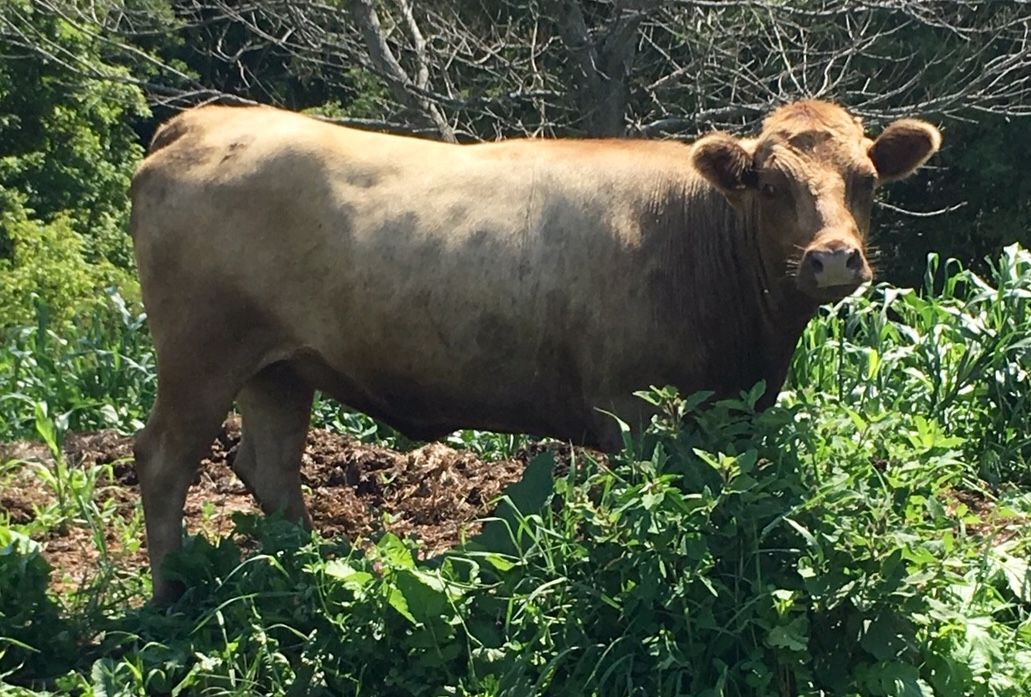New Cattle for our Livestock Operation
By Lynda Prim, Senior Farm Director
The Livestock Team is in the process of obtaining a new type of cattle for our livestock operation. We are getting five Dexter cows crossed to Devons from Q Farms in Sharon, Connecticut. This is the farm of Linda Quella, and her husband, James. Some of you may also know Q Farms’ Manager, Dan Carr, who helped us decide which cows to get because he knows each animal so well.
This is a new direction in our cattle enterprise as well as a new chapter for our farm because the Dexter crossed with Devon is an ideal small dual purpose breed for small farms.

Glynwood's Livestock Manager James Walton-Fuentes taking notes on the breed sheet.
Dexter cattle are a smaller breed from northwestern Ireland that were brought to England in the late 1800’s. The breed virtually disappeared in Ireland but has been maintained as a pure breed in small herds in England and the United States. Their small size makes Dexters lighter on the land and they produce a well-marbled meat that has a distinctive delicious flavor.
Devon cattle are a medium-sized beef breed from North Devon in southwest England that are docile animals who produce superb marbled beef even from poor forage. They are adaptable and hardy, and good for farming in rugged climates, therefore a good breed for farming in a changing climate in which extreme weather events will be more common. They were originally an enduring feature of small family farms where they were kept for milk, beef, and for ploughing oxen. They calve easily as they have smaller calves which then grow quickly from rich mother’s milk — the milk that is famous for producing Devon clotted cream. While the Devon breed is wonderful, it still is too heavy for the water saturated soils we are increasingly experiencing.

Linda Quella, Glynwood's Assistant Livestock Manager Nicole Scott and James Walton-Fuentes look over the Q Farms Herd.
Our new Devon/Dexter cattle are intermediate in size between a Dexter and a Devon, having longer legs and a slightly wider body than most Dexters. The carcass size of a two year old steer or heifer will be about two-thirds to half that of the cattle we have now, so we will be targeting special markets that place a high value on quality, flavor and environmental sustainability.

Q Farms' overwintering barn.
For our livestock operation, these cattle are a better choice than purebred animals of either breed because they will be so versatile for our farming scale, management practices and markets. Two of the cows are pregnant and will be calving in December. Our goal in getting pregnant cows is to begin breeding our animals to produce a line of beef cattle that retain all the good features of both breeds, and are ideal for our climate and conditions here in the Hudson Valley. The type of cattle we hope to develop are docile, hardy, good foragers, good mothers, good beef producers, and with the Dexter adaptation of larger feet on a smaller frame, have a lower weight ratio per hoof. This will result in much less pugging damage on our pastures. By developing them in our pasture-based, organic, humane animal welfare system, we are raising cattle with a naturally robust constitution that will be ideal for regenerative farming enterprises. They are particularly good for new farmers because of their smaller size and docile, tractable natures that make them easier to handle.

Hallelujah the Cow.

